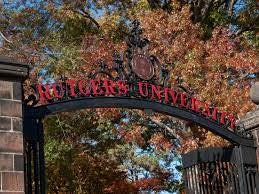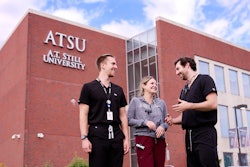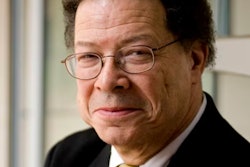The COVID-19 pandemic has made visible the inequities that riddle the American healthcare system. Black and Latinx Americans have been three times more likely to contract the coronavirus and twice as likely to die from it. But even before the pandemic, minority populations often had higher rates of illness and death from an array of conditions, including diabetes, asthma, and heart disease.
In response to these disparities, Rutgers University announced this week the Rutgers Equity Alliance for Community Health (REACH), an initiative to improve health and quality of life in economically disadvantaged communities. Funded by a $10 million grant from the Robert Wood Johnson Foundation, REACH will focus on social determinants of health, the environmental factors that can affect wellness, such as education, employment, and housing.
“We’re not going to say that part of our project is to get people with diabetes to take their medicine better,” said Dr. Denise Rodgers, vice chancellor for Interprofessional programs at Rutgers Biomedical and Health Sciences, and co-director of REACH. “We’re saying, let’s make sure that people with diabetes have a home, so they have a refrigerator where they can store their meds that need to be refrigerated.”
Focusing initially on Camden, New Brunswick, and Newark, the New Jersey cities where Rutgers has campuses, REACH will give community impact grants to Rutgers faculty partnering with community-based organizations (CBOs) to build on interventions that have been working locally or elsewhere in the country. It will also give seed grants to faculty-CBO partnerships for innovative research projects. Applicants for the grants will have to demonstrate that the community partnerships are substantive. This emphasis on working with communities as equals is fundamental to REACH’s approach.
“We have a long legacy in this country of going in and studying communities and then deciding what should be done without actually bringing in the voices of the people who represent the communities,” said Rodgers. “There’s a saying that community leaders use that I think we want to adopt: nothing about us without us.”
According to Dr. Anna Branch, senior vice president for equity at Rutgers and REACH’s other co-director, “there’s knowledge and insight that communities hold that others don’t.” Branch gave the example of an outside organization trying to solve the problem of children not getting preventative care. An organization might assume that the reason was a lack of insurance coverage. But without partnering with the community, they might miss other important factors, such as parents having to work when the clinic was open, or a lack of intake forms in languages other than English. Dr. Anna Branch
Dr. Anna Branch
REACH intends to include community organizations from the beginning of the process. For each of the social determinants on which it will focus, REACH plans to convene collaborative learning tables, groups in which representatives of community organizations will meet with faculty and staff of the university to exchange information and coordinate their efforts.















